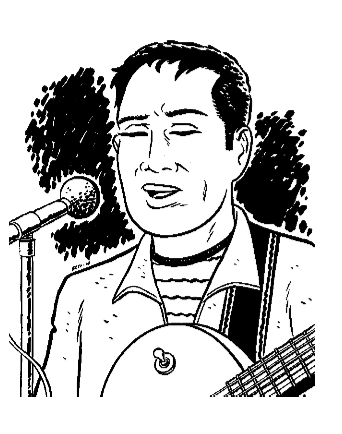It’s the fate of the good work to belong to the public. It’s the fate of the masterpiece to be bent out of shape, to be reimagined, remodeled by its audience. It’s the fate of popular art to be scoured for clues, understood only in part or misunderstood, and this can’t be controlled by the hardworking artist who came up with the work in the first place. The way a book or record or painting or movie thrives in the face of this barrage of refractions indicates its long-term durability. Those endless new translations of The Odyssey and The Divine Comedy, for example. Or what about the film version of The Virgin Suicides, or The Hours? “The Star-Spangled Banner,” wrenched out of its casing by Jimi Hendrix. Joni Mitchell singing Mingus. If something works, it can stand a little misuse.
What about all those guys, and they are mainly guys, who have sat around winnowing The White Album down to a single disc? Well, first you get rid of “Revolution 9,” because it’s too long and too abstract, and then you get rid of “Ob-La-Di, Ob-La-Da,” despite the fact that one admires McCartney more as one grows older; out with “Bungalow Bill,” out with “Honey Pie,” “Martha My Dear,” because it’s about a dog, etc. Before long, you are left with a record that has on it “Dear Prudence,” “Julia,” “Happiness Is a Warm Gun,” “Why Don’t We Do It in the Road?,” “While My Guitar Gently Weeps,” “Helter Skelter,” “Birthday,” “Everybody’s Got Something to Hide (Except for Me and My Monkey),” “Cry Baby Cry,” “Yer Blues,” and so forth. In short, you’ve got an unbelievably great rock and roll album. Does it do the Beatles a disservice? On the contrary. It indicates the bounty of material from which to choose. This is how some people pass an afternoon.
The subject of today’s surgery is 69 Love Songs by the band known as the Magnetic Fields. The Magnetic Fields, as I understand it, began, under various names and permutations, in the late Eighties, in the Boston area, and hardened, more or less, into a group when Claudia Gonson, one of its singers and now manager of the band, was studying at Harvard. The other principals were also living in the area, first and foremost, Stephin Merritt, singer, composer, guitarist, keyboardist, etc. The Magnetic Fields are the closest thing to a traditional band in the multiform career of Merritt, who has any number of other musical entities to which he occasionally turns his attention—the 6ths, the Gothic Archies, Future Bible Heroes. Much of the time Merritt records all the...
You have reached your article limit
Sign up for a digital subscription and continue reading all new issues, plus our entire archives, for just $1.50/month.
Already a subscriber? Sign in





